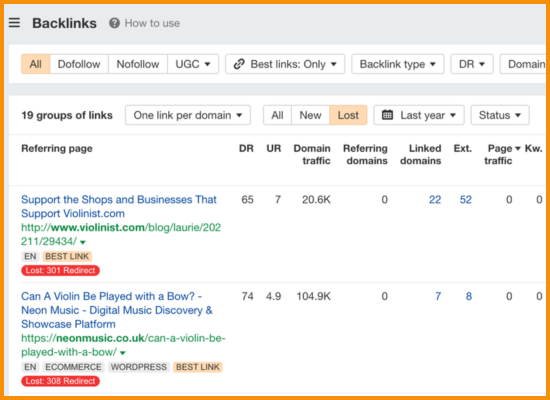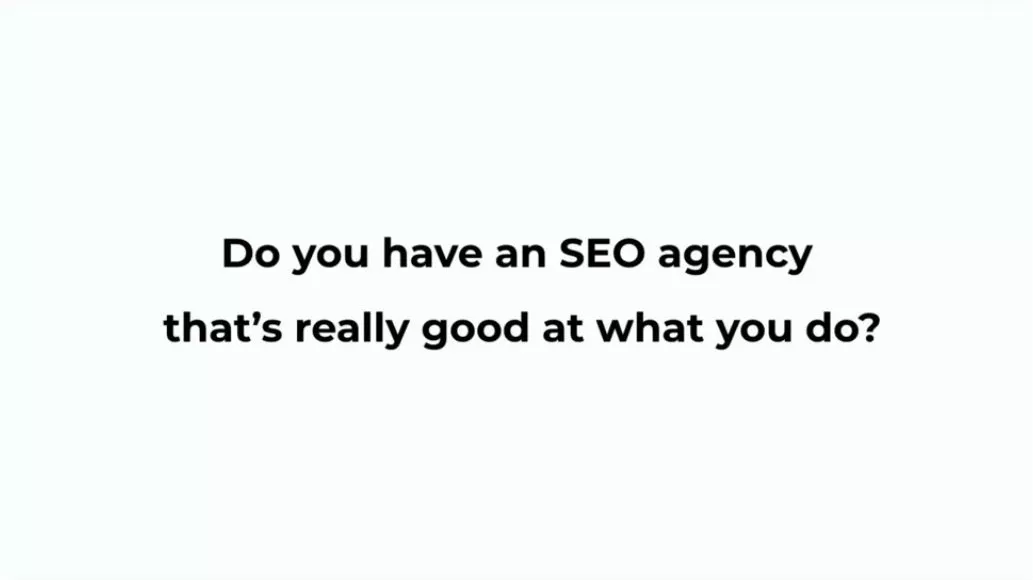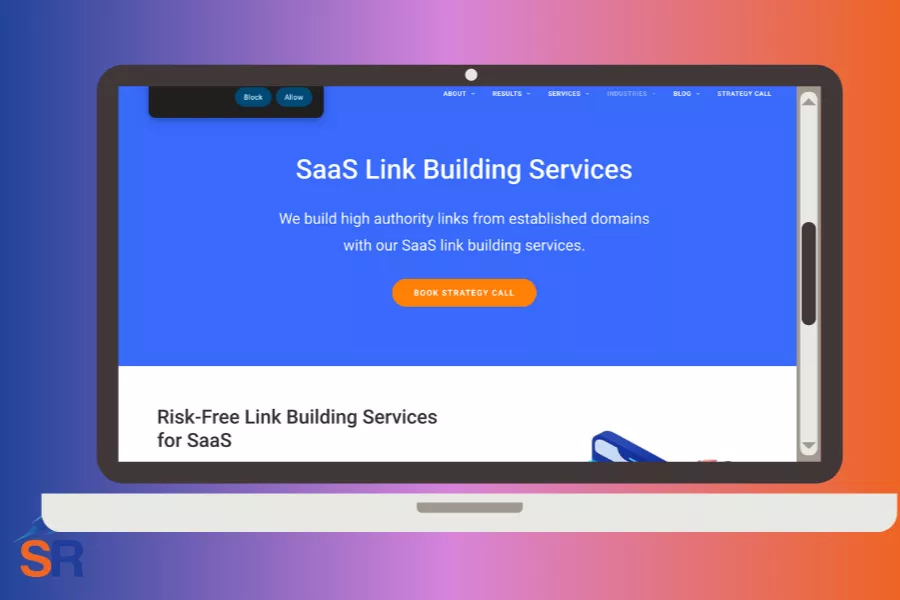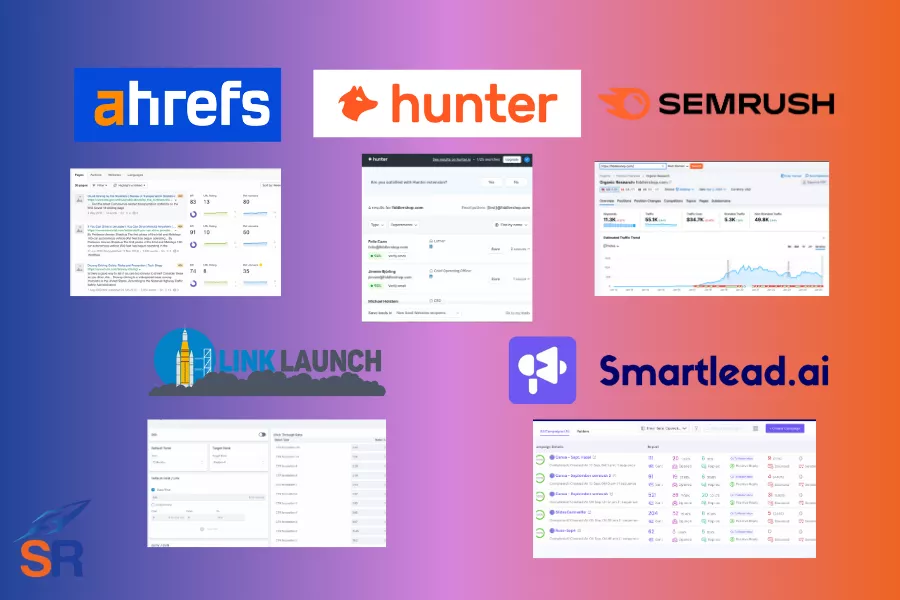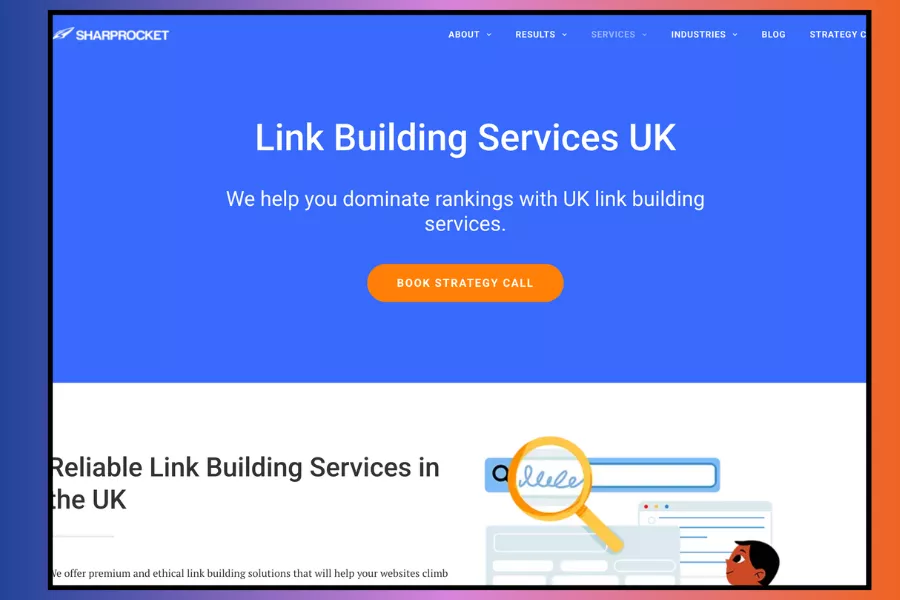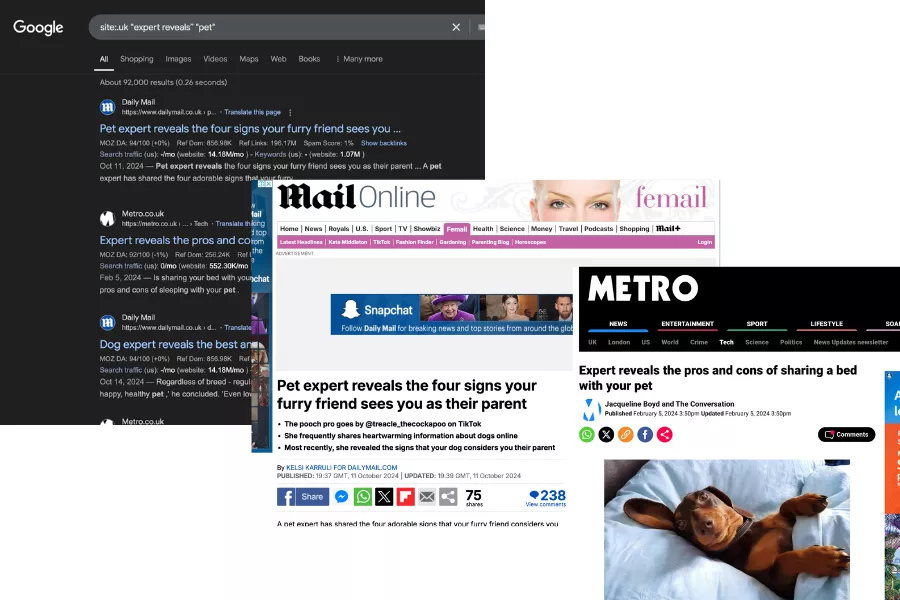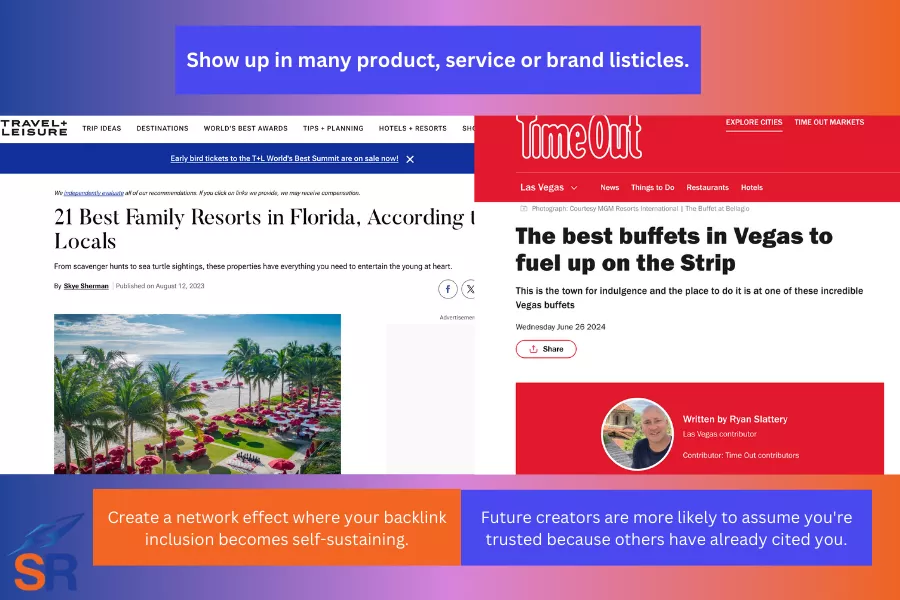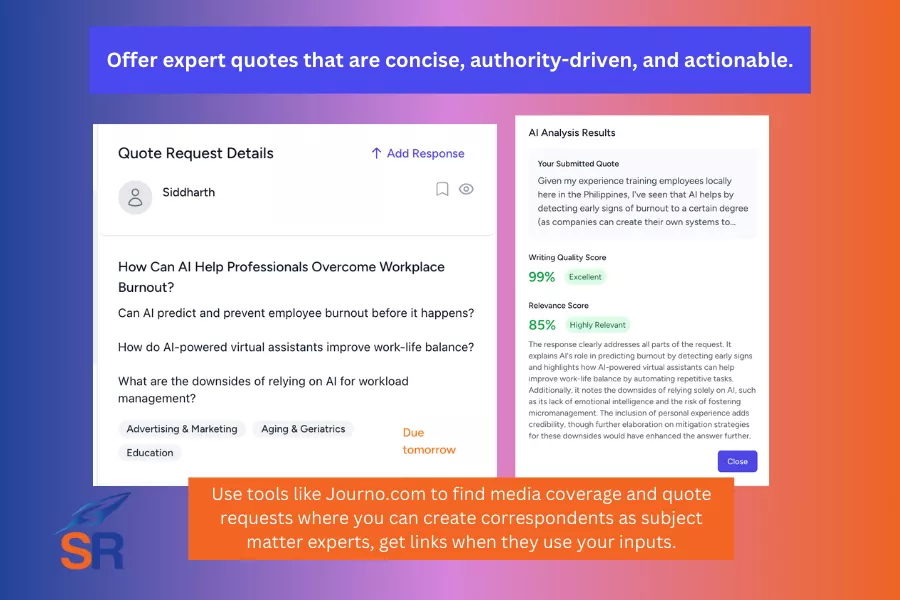Links help build topical and brand authority, reinforcing contextual relevance and semantic associations across the web, which helps search engines better understand the relevance of your product or content to specific topics.
Authority link building is no longer a “nice-to-have” deliverable for many in-house and agency SEO specialists – it’s actually the new baseline to positioning your content and product in AI Overviews, Perplexity citations, and other LLM-driven answers.
Link building campaigns must therefore prioritize authority signals as a prerequisite when looking for potential link opportunities alongside “backlink relevance” – as having both metrics for links will significantly impact your brand’s ability to show up for traditional organic search results, AI Overviews, and AI Mode.
Here are a couple of tactics you can try to help build authority backlinks to your site.
Contents
ToggleNiching Down
Choosing topics, product features, or subject matter in your industry where you want to be known for is one of the effective ways to build your site’s both brand and topical authority – as it will be easy to be recognizable if you zero in your effforts and activities on few core themes that matters most to your business (think “specialist” than generalist).
Increase and improve your site’s content library by publishing pages that cover topics exhaustively, addressing all relevant sub-queries, and semantically connecting them through internal linking – ultimately building your site’s overall brand authority and helping you surface more in AIO and LLM’s citations.
Having robust content assets in place on your site will also positively impact your link building outreach efforts – as you can use them to develop your credilibity as an author when pitching content for other trusted publications (especially when editors would first want to see the caliber of your content to qualify you as their contributors).
It also assists in your site’s natural link acquisition process as you’ll get more editorial links from publishers referencing your content work in their future articles – especially when you show up for informational or question-based queries in Google’s SERPs (even when it is surfacing AI Overviews).
Standard best practices of content-based link acquisition when niching down:
- When distributing content on other publications, target secondary keywords, FAQs, and customer queries that are only topically relevant to your site to improve and retain focus within the topical clusters you’re building on.
- Become regular contributors for targeted authority blogs and publications instead of aiming for several one-time guest posts (as being a frequent writer will help continuously send brand signals to your site, particularly when the entities you’re penetrating are perfectly aligned with your site’s topic clusters).
- If you’re establishing topical authority for new sites, focus on one to two core content themes by covering every topic, query, or question your target audience may be looking for in your content.
And with hidden opportunities that exist in AI Overview citations, smaller sites with strong topical authority can surface on a particular subtopic or piece of content that has a unique perspective – making it more important to get deep coverage in your niche being picked by AIO algorithms.
Back in 2013 to 2017, my go-to strategy for building my personal brand (and our company’s branding for that matter) is solely focusing on publishing content assets about link building and content marketing – which up to this date, has been significant to the growth of our link building agency in terms of generating leads every month.
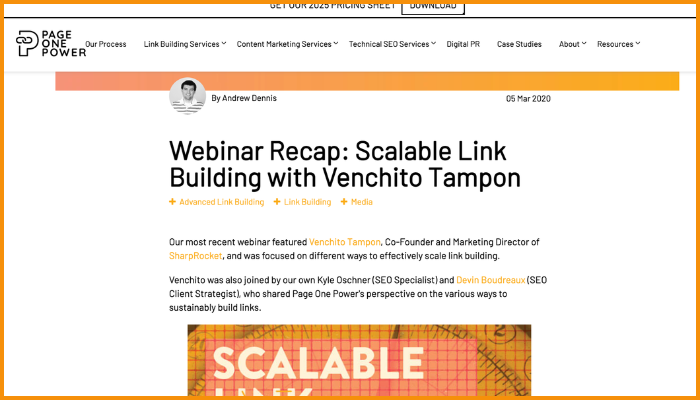
The best thing with this strategic content development is you’ll be known for being one of the first authors who write for emerging topics and trends in the industry – which are often overlooked by big publishers that cover a wider variety of topics.
Data Studies
Providing unique insights in your content assets will become a key advantage for brands aiming to level up their authority – as information gain where new, original, and helpful information a content provides beyond what’s already known – gets rewarded with better search rankings by Google.
Here are content types that naturally deliver and can increase the information gain score in your content:
- Proprietary data and original research (e.g., industry studies, customer insights, or survey findings)
- Unique methodologies or frameworks that solve specific problems in your niche
- Detailed case studies that highlight real-world applications, outcomes, and lessons learned
- Expert roundups or original interviews that make the content rich
- Comprehensive how-to guides that target untapped topics (and that go beyond basics and offer nuanced solutions)
- Comparative analyses that highlight gaps or differences in tools, strategies, or platforms.
Ahrefs has been consistently producing data studies for the past few years, which has helped them automate their natural link acquisition process.
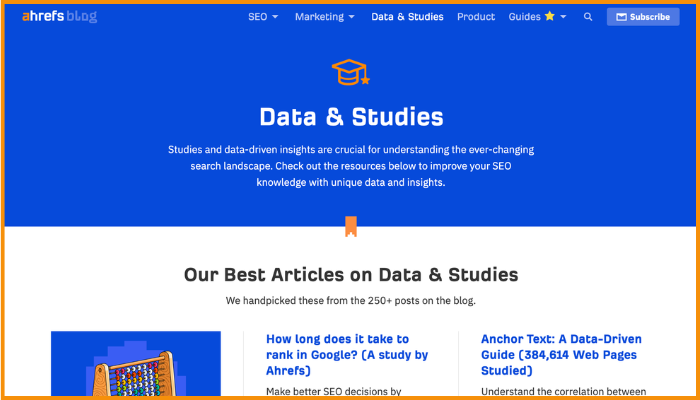
This type of linkable asset tends to attract authority publishers who want to reference data studies to support their claims.
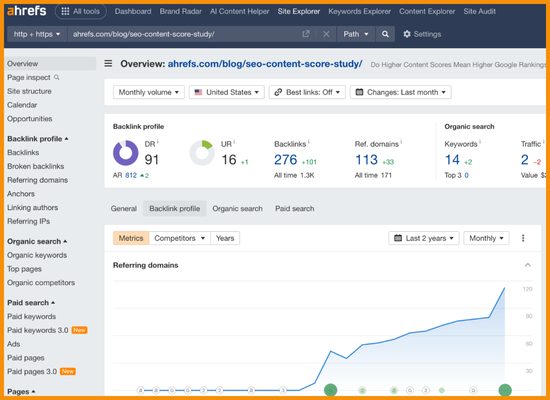
Don’t have internal data? You can conduct customer surveys to gather original insights using simple polls or feedback forms through tools like Jotform or Google Forms.
Multi-Sourced Citations
Getting links from established entities, names, and publications that can distribute authority through links can help stack up your site’s overall branding and reputation – increasing your brand’s visibility on AI Overviews and AI Mode.
Target co-citations from publications already citing trusted entities in your niche, given that, as you get mentioned in the same places as niche authorities in your industry, Google will start to associate your brand with similar levels of expertise and topical relevance.
You can use Ahrefs’ Link Intersect or any similar link building tools to find listicle pages or any content piece with sections that compare products, providers, or tools that already link to multiple competitors.
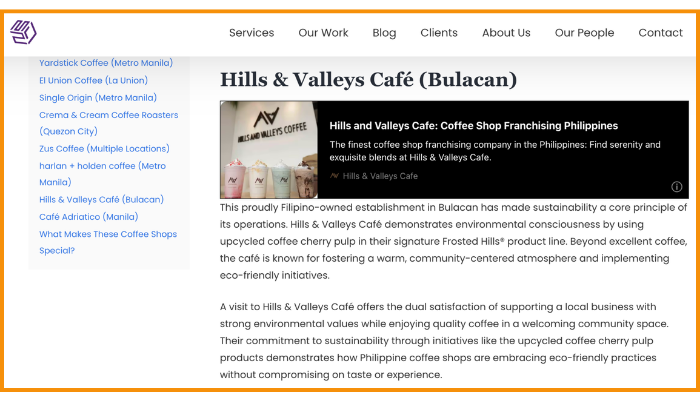
Assess the content from a publisher’s perspective and identify angles that align with your brand, such as a unique value proposition and strengths in your product features, stories, or use cases that make your product or service stand out.
Use your brand’s point of view (POV) when reaching out to these publishers and suggesting your brand as a great addition to their lists.
Brand Messaging
Monitoring how your brand is perceived within the LLM’s atmosphere can provide you with insights into positioning your brand messaging, which can help refine your link building campaigns to focus on strengthening your brand message.
Identify sources currently defining your brand in LLMs by assessing certain elements to help you refine your LLM citation strategy – here are a few questions to help you out:
- Which brands or experts are most frequently referenced in your niche?
- What tone, phrasing, or terminology do LLMs use when referring to your brand or competitors?
- Which value propositions, features, or differentiators are being emphasized?
- Are there inconsistencies, outdated facts, or misalignments in how your brand is portrayed?
Ask LLMs questions directly to show you precisely what they pull from their training data about your brand.
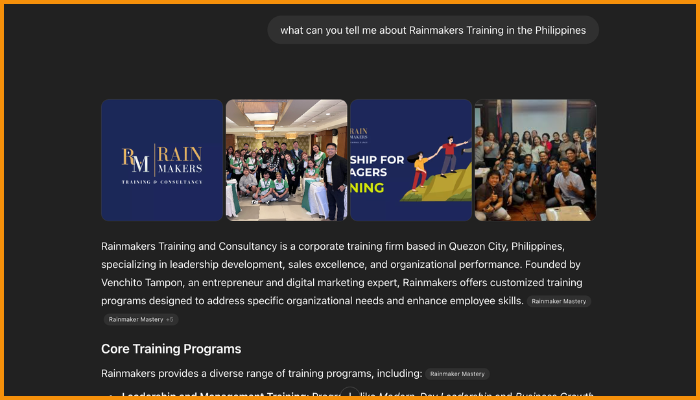
Check if the descriptions are accurate. If you find any discrepancies, you can fix them by updating the actual source information on your website, such as your About Us page and any FAQ pages. You can also revisit your citation listings and profile websites like Yelp, Google Business Profile, and Trustpilot.
Enhance your brand messaging by ensuring consistency across all platforms.
Use Ahrefs’ Brand Radar to discover third-party sites with strong AI overview visibility and consider strategies to partner with them to increase co-citation opportunities.
Reverse Link Reclamation
Link decay naturally happens for websites that have been existent for years because of many reasons that even the actual editor who initially gave the link that was lost may not be fully aware of – instances such as site redesign, content pruning or accidental link breaks during CMS updates can actually lose some of these high-quality backlinks.
That’s why it’s always essential to conduct backlink monitoring not only for recently built backlinks, but also for lost links that still hold brand value.
Especially with how LLMs surface citations, unlinked brand mentions with positive sentiments across the web are critical trust signals in influencing how often your brand appears for conversational bottom-of-the-funnel queries in AI-generated results.
You can use Ahrefs’ Lost links report to spot any backlink drop-off to your site and assess whether they can be recovered by re-engaging the original referring website or simply requesting the reclaiming of mentions that were previously removed.
Certification Programs
Certification programs are another asset that companies can leverage to improve and scale their site’s linkability – especially when it is aligned with the main product or service’s positioning and actually helps drive more conversions to the business.
Just think of Ahrefs Certification and SEMRush Academy – both of which have individual courses beneath them that get a ton of links, along with branding opportunities from users who showcase their “certification” as badges on LinkedIn, blogs, or portfolios.
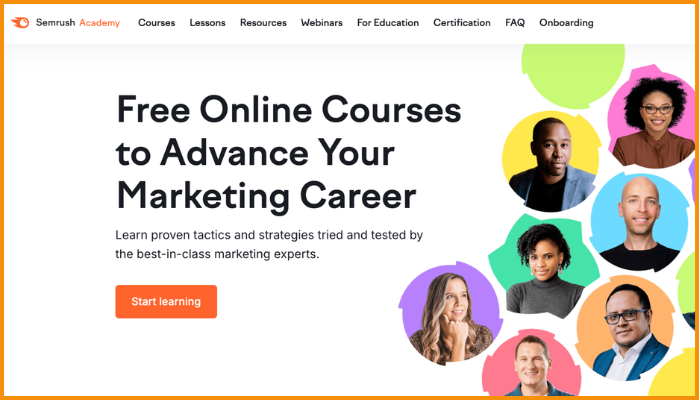
It could also help naturally earn mentions from learning directories and industry roundups that include “Best Courses [Industry]” and often link out to reputable certifications.
Branded Micro Exact Match Domains
This is one of the oldest tricks in the link building book, but it still works effectively, especially when the exact match domain has a distinct brand identity apart from the business it’s giving brand value to.
Recently, we’ve launched our own microsite to help us gain more visibility for our main coffee shop franchising brand.
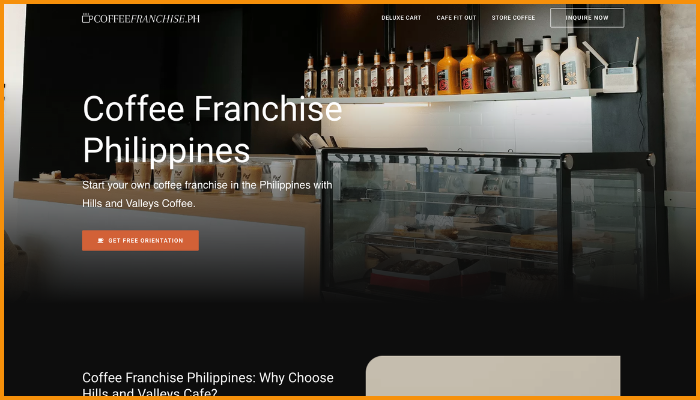
This new entity can help expand the business in so many ways, such as:
- Naturally builds relationships with other publishers that we can also pursue for the main business.
- Establishes as another effective lead generation as it can appear in AI Overviews, and ranks well for traditional search listings using its own content development, branding, and strong technical SEO – as EMDs still gets favor by search engines – this has been tested by James Norquay from Prosperity Media and has been their go-to strategy for years.
- Provides more content creation insights into what “use cases” haven’t been published for, based on search data for keywords the webpages are currently ranking for.
- Improves the main business’ visibility by creating its own listicle or roundup for product or service providers, highlighting the primary products/services’ POV at the top of the list.
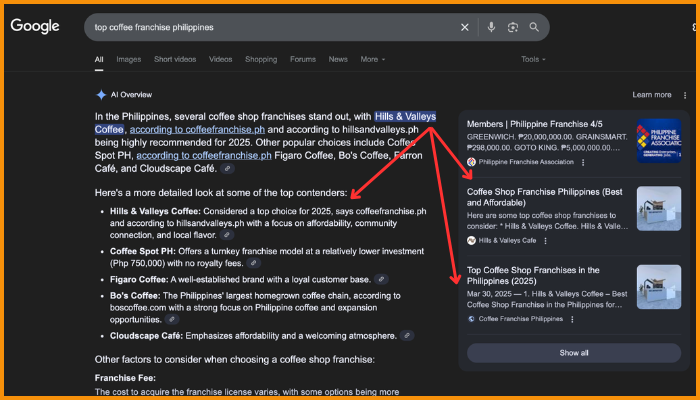
The result of this strategy has been quite interesting, both in terms of its own brand visibility and in helping our main business surface higher on AI Overviews and LLMs.
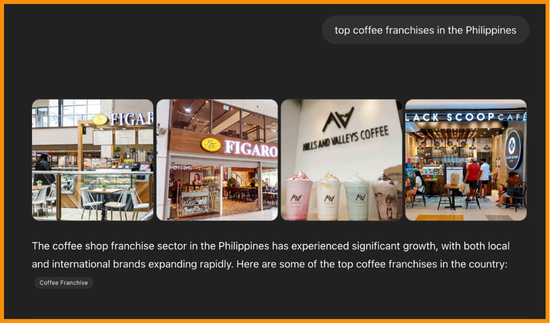
Editorial Review by Expertise
Inviting guest authors to write for your blog has been a standard practice for years, and it’s still one of the best ways to develop new relationships with other content contributors while getting expertly crafted content that will help gain more visibility and leads for your website.
However, for many blogs, the editorial review has been overlooked for the reason that they’re more interested in the volume of these articles than having to qualify content from few authors who can bring strong EEAT to content – accepting more average guest authors and having only one editor who will handle all the editorial reviews for submitted articles.
One of the key strategies to maintain accuracy, authenticity, and establish strong EEAT signals is to have multiple editors with technical expertise assigned to review articles in specific categories.
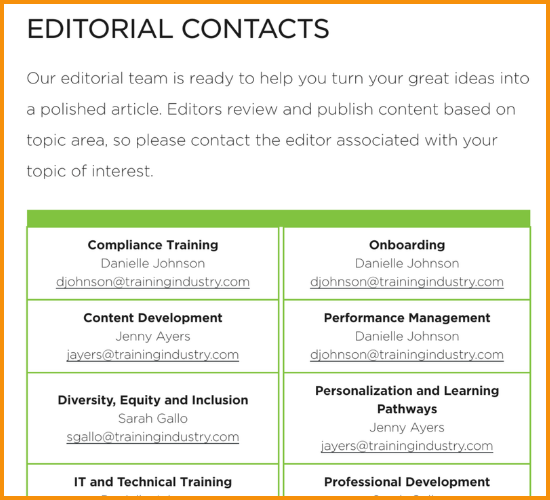
Aside from benefiting from better assessment in technical expertise, having a designated expert editor to review articles will have more advantages than one generic editor:
- Assess the potential “information gain” by seeing unique perspectives, insights, and ideas that the content could provide in adding something new to the existing body of knowledge.
- Spot technical or nuanced errors that a generalist might overlook, leading to higher subject-matter accuracy.
- Validate the use of reliable, authoritative sources, and suggest more impactful sources that are more aligned with the topic, if needed.
- Suggest improvements for better content structure and depth, even during the process of outlining the content.
Having expert editors will also help combat fake EEAT-author bios, which Google has been cracking down on recently in its ongoing effort to validate real expertise.
Don’t have multiple expert editors? You can ask other influential authors within your networks if they can peer-review your content.
Founder Stories
One of the best ways to exemplify the brand’s expertise and authority is by telling authentic stories of the founder or leadership team who actually built the company and made it successful – given that stories serve as living proof of experience demonstrating what the brand truly stands for and how they earned its place in their target niche.
Founder stories and leadership narratives often showcase real-world challenges, strategic pivots, and lessons learned that go beyond surface-level (hype) marketing and allow both the audience and search engines to recognize the brand as a trusted voice in the industry.
Journalists often pick up these types of stories, given they are constantly looking for narratives that evoke emotion or ones that showcase breakthrough moments, as they are more relatable and have a high shareability component (“virality effect for the right audience).
For instance, Louis Smith, founder of Rebel Aromas, has been gaining brand visibility for his company lately after they landed a front-page feature on Entrepreneur (DR91 link).
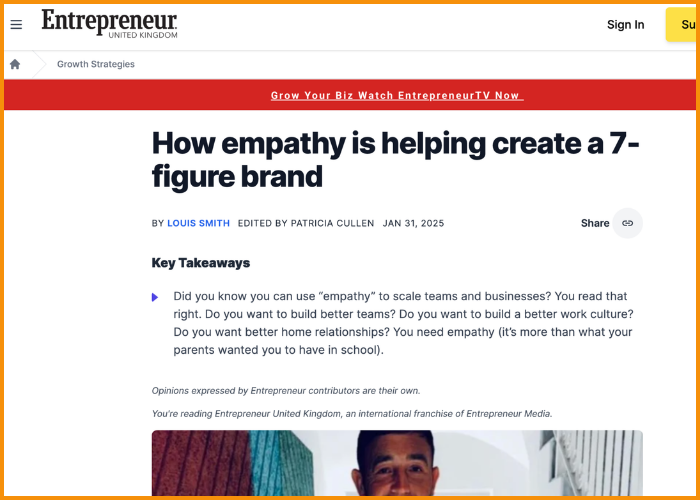

And from that actual feature that brings their company to a whole new level of exposure, including being invited to appear as a cast member on a Channel 4 television show in the UK.
Digital PR campaigns can integrate well with other online brand marketing initiatives, such as increasing positive brand sentiments on social media, which helps build brand mindshare, as well as securing more company features in traditional media outlets (e.g., newspapers, magazines, and TV).
Homepage Links
The recent study by SiegeMedia, led by Ross Hudgens, has yielded new insights and shifts in improving conversion potential and branding efforts on the homepage, as the study reveals that homepage traffic increases by 10.7% from AI Overviews and LLMs.
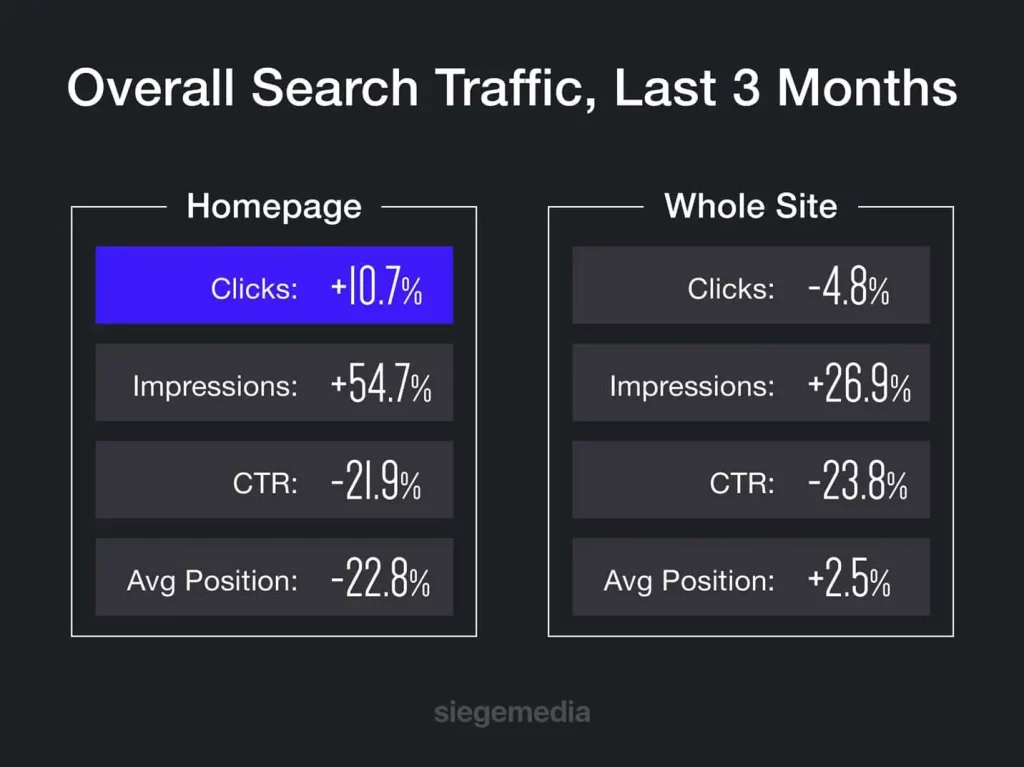
This leads us to consider more online marketing efforts, including improved link development campaigns that target the homepage.
Here are a couple of homepage link building tactics aside from the traditional link building strategies that you’re already aware of:
- Create a data-backed “State of the Industry” Report that you can feature on your homepage and serve as a citable element for other authoritative publishers and journalists to link to you as a reference to their own content.
- Create a media kit or “Press Room” section that hosts your brand’s media assets and press information, allowing journalists to reference either directly from your homepage or a specific author or personality page.
- Curate a public-facing’ brand timeline” or milestones journey of your company that you can use as a value asset in press releases and founder stories.
- Include “impact” or “social responsibility” initiatives that showcase your brand’s advocacy or sustainability efforts, which you can also promote to local news and NGOs that often link back to these types of initiatives.
Want to build backlinks that actually move the needle for brand visibility and authority? We design high-impact link building campaigns to achieve higher visibility in both traditional search and AI-powered results.
See our link building services, and we’ll help you become the source, not just the search result.
Written By
Venchito Tampon
CEO and Co-Founder at SharpRocket, a link building agency. With a decade of experience, Venchito has a proven track record of leading hundreds of successful SEO (link builidng) campaigns across competitive industries like finance, B2B, legal, and SaaS. His expert advice as a link building expert has been featured in renowned publications such as Semrush, Ahrefs, Huffington Post and Forbes. He is also an international SEO spoken and has delivered talks in SEO Zraz, Asia Pacific Affiliate Summit in Singapore, and Search Marketing Summit in Sydney, Australia. Check out his other business - Hills & Valleys Cafe.
Reviewed By

Sef Gojo Cruz
COO at SharpRocket, overseeing end-to-end operations, from crafting link building strategies to leading high-performing teams. Previously led SEO initiatives at Workhouse, a digital agency in Australia, and Keymedia, a real estate media company based in New Zealand.
How our LINK BUILDING AGENCY in UK builds 250 links/mo consistently using Predictable Link Building Methodology™…
- Using a SIMPLE and PROVEN system
- Using a SCALABLE strategy
- No private blog networks
- No creepy outreach emails
